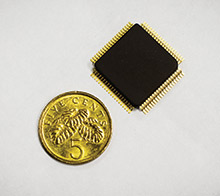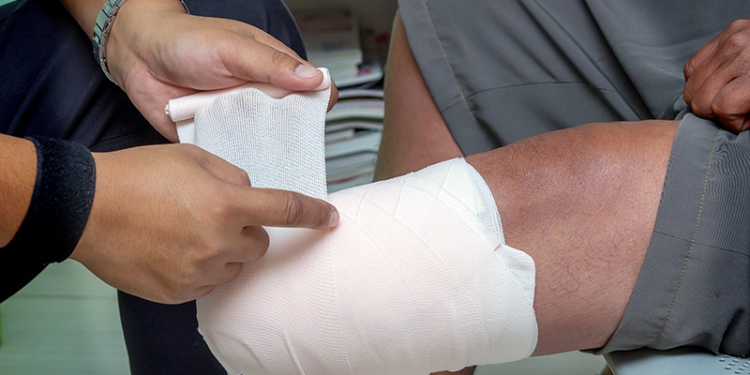 Photograph of the smart chip courtesy of NTU Singapore.
Photograph of the smart chip courtesy of NTU Singapore.Scientists at Nanyang Technological University, Singapore (NTU Singapore), have developed a small smart chip, measuring 5mm by 5mm, that they said can be paired with neural implants for wireless, highly accurate transmission of brain signals. Their work has possible applications that include helping people with paraplegia move robotic limbs.
Assistant Professor Arindam Basu, PhD, from NTU Singapore’s School of Electrical and Electronic Engineering, said the research team has tested the chip on data recorded from animal models, which showed that it could decode the brain’s signal to the hand and fingers with 95 percent accuracy.
“What we have developed is a very versatile smart chip that can process data, analyze patterns, and spot the difference,” explained Basu. “It is about a hundred times more efficient than current processing chips on the market. It will lead to more compact medical wearable devices, such as portable ECG monitoring devices and neural implants, since we no longer need large batteries to power them.”
To achieve high accuracy for decoding brain signals, implants require thousands of channels of raw data. To wirelessly transmit this large amount of data, more power is also needed which means either bigger batteries or more frequent recharging. This is not feasible because there is limited space in the brain for implants and frequent recharging means the implants cannot be used for long-term recording of signals.
Instead of enlarging the power source to support the transmission of raw data, Basu tried to reduce the amount of data that needs to be transmitted. Designed to be extremely power efficient, NTU Singapore’s patented smart chip will analyze and decode the thousands of signals from the neural implants in the brain, before compressing the results and sending them wirelessly to a small external receiver.
Editor’s note: This story was adapted from materials provided by Nanyang Technological University, Singapore.




